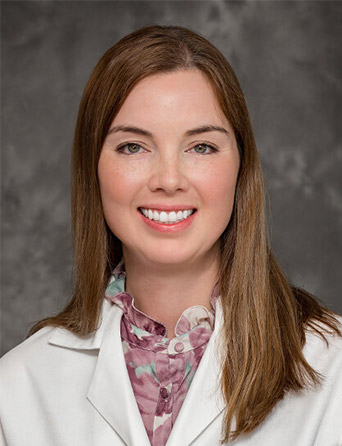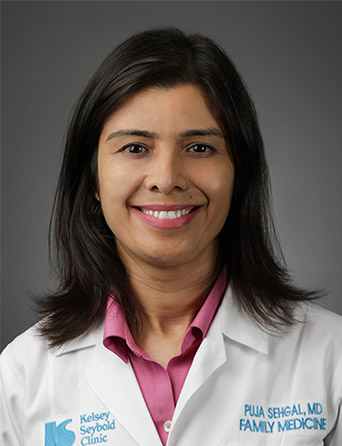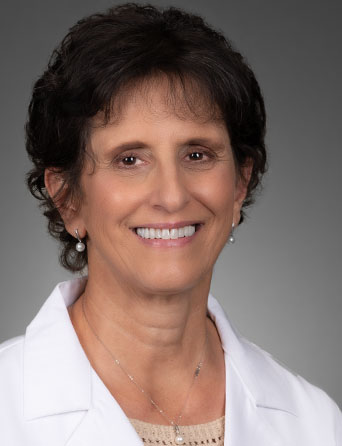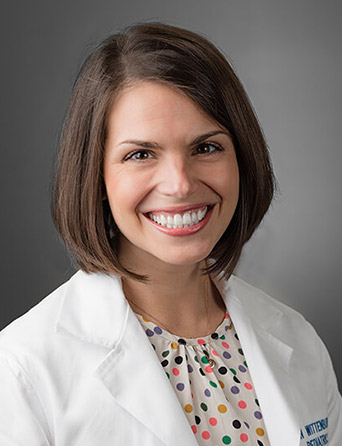Join Our eNewsletter!
Subscribe to our monthly newsletter to receive encouraging advice to help you lead a healthy lifestyle.

Flu Shots - What You Need to Know
Each year, in the United States, there are approximately 36,000 influenza-related deaths, and an estimated 114,000 to 221,000 hospitalizations due to influenza.
Melanie Mouzoon, MD, managing physician for Immunization Practices at Kelsey-Seybold Clinic, urges flu shots for all of the following individuals:- Adults 50 years of age or older. (If you have an allergy to eggs, talk to your doctor. There's a flu vaccine option that's made without eggs. It's recommended for ages 18 through 49.)
- Children between the ages of 6 and 59 months. (Children younger than 6 months are too young for flu vaccination.)
- Children 6 months through 8 years: They may need two doses of flu vaccine.
- Pregnant women (in any stage of pregnancy).
- Residents of long-term care facilities.
- Persons who have chronic illnesses especially of the heart, lungs or immune systems, those with diabetes or other metabolic illnesses, and those with multiple sclerosis.
- Caretakers, family and household members of anyone in the above categories, especially school children, who are most likely to bring the virus into the home.
- Household/family members of infants between the ages of 0 and 6 months (babies are at high risk of hospitalization with the flu but cannot get the vaccine until 6 months old.).
- Anyone with a body mass index (BMI) of 40 or greater.
- Healthcare workers.
The best time to schedule your flu shots is before flu season starts, it may take up to two weeks for the vaccine to become fully effective. “And while you’re in your doctor’s office, make sure your other immunizations are up to date, too,” the doctor noted. Individuals may need pneumococcal, hepatitis and other vaccinations in addition to the flu vaccine.
Vaccines offer safe and effective protection from infectious diseases. By staying up-to-date on the recommended vaccines, individuals can protect themselves, their families and their communities.
Dr. Mouzoon recommends these six healthy habits to help you prevent the flu:
- Avoid close contact with people who are sick. When you are sick, keep your distance from others to protect them from getting sick, too.
- Stay home when you are sick. You will help prevent others from catching your illness.
- Cover your mouth and nose with a tissue or cough into your sleeve instead of your hand if no tissue is available. It may prevent those around you from getting sick.
- Wash your hands. Using an alcohol-based hand sanitizer often will help protect you from germs and keep you from passing them on.
- Avoid touching your eyes, nose or mouth. Germs are often spread when a person touches something that is contaminated with germs and then touches his or her eyes, nose, or mouth.
- Practice other good health habits. Get plenty of sleep, be physically active, manage your stress, drink plenty of fluids, and eat nutritious food.
For more information, visit www.cdc.gov/flu.

Kelsey-Seybold Clinic has primary care physicians who specialize in Family Medicine, Internal Medicine, and Pediatrics at clinic locations throughout the Greater Houston area, so you’re never far from the compassionate, proactive care you need.








